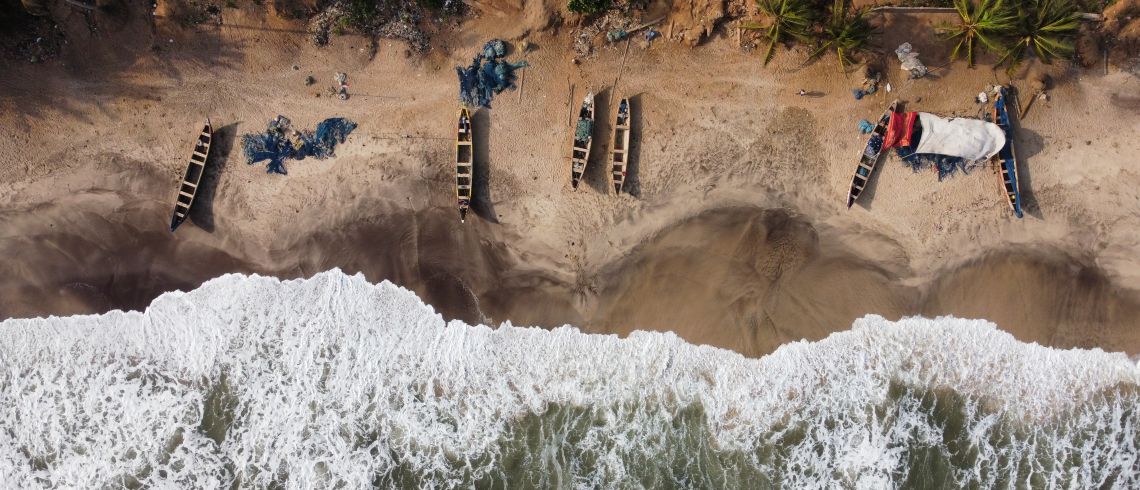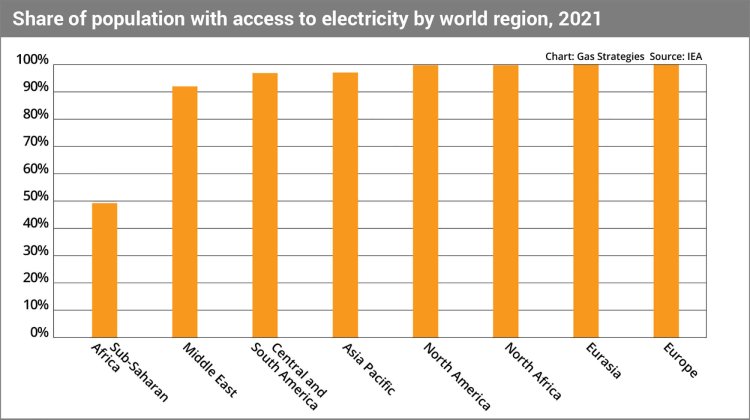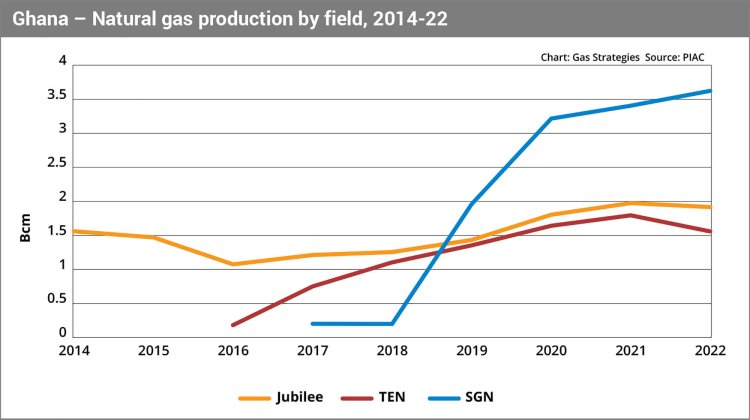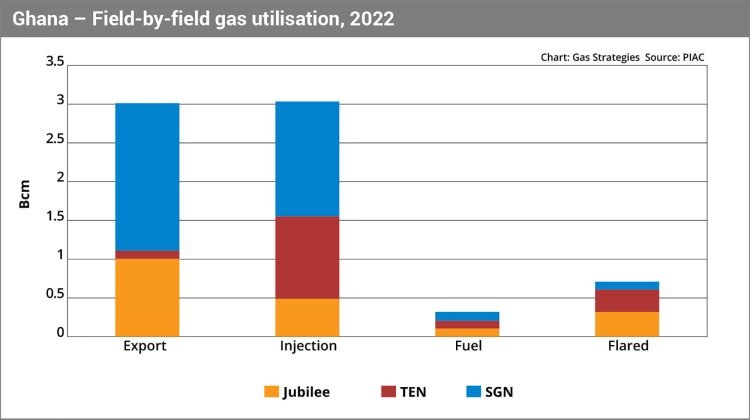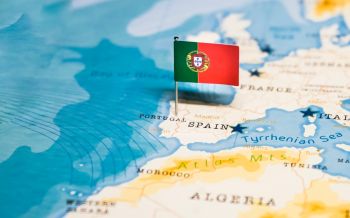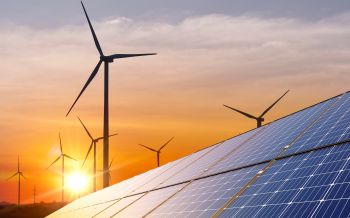- Under half of sub-Saharan Africa’s population has access to electricity while penetration of gas remains minimal
- Upstream independent Vaalco eyes expansion out of Gabon through M&A, targets 50,000 boe/d output by 2025
- Ghana-based Genser has built gas power plants and 420 km of pipelines to fill gaps in midstream infrastructure
- Investing in own infrastructure allows companies to maintain independence while aiding regional development
In late February, a panel that included Shell and BP chief economists told the International Energy Week conference in London that developing nations have started to push back against the Western world’s idealistic energy transition vision. This is because unique environmental, economic and infrastructure needs will likely impede many regions’ capacity to adopt the net-zero timeline expected by the West.
When considering sub-Saharan Africa in this discussion, it is remiss to consider the continent as one region, even when broken down further into smaller regional landscapes: there are many elements that set the countries that make up the world’s second-largest continent apart – especially in terms of their energy needs.
“It is sometimes hard sitting in West Africa and listening to pundits in Europe saying, ‘Africa has a lot of sun, we should just cover the continent with solar panels’ but not understanding that there is a myriad of issues with this,” says Frances Rogoz, VP for project development at West African power supply player Genser Energy.
Filling demand
Achieving widespread adoption of power generation and further developing the region’s natural gas sector is a top priority for West Africa, as it continues to grapple with power outages and inconsistencies in its energy systems.
As in many low- and middle-income regions, gas is considered a pivotal transitional fuel across Africa, and in West Africa, opportunities for innovation are rife. “When one considers that 600 million people in Africa don’t have access to electricity, then we think the continent should absolutely be focused on benefitting from the revenues of the large untapped resources across the continent to deliver a just transition,” George Maxwell, CEO at upstream independent Vaalco tells Gas Matters. The Houston-headquartered company he heads has various West African assets, including E&P blocks in Gabon, and a complementary floating storage and offloading unit (FSO).
According to the International Energy Agency (IEA), just under half of the population in sub-Saharan Africa had access to electricity. The share, under the IEA’s stated policies scenario (SPS), is set to grow to 62.6% by 2030 – still well below the global average. The share of gas in sub-Saharan Africa’s energy mix stood at just 5% in 2019.
“There has been huge underinvestment in the [gas] industry over the last decade, so our production is a small part in filling that demand for the products that power economies and generate the revenue that enables positive socioeconomic development,” Maxwell adds.
In October 2023 Vaalco acquired a non-operated interest in upstream peer Svenska and its interest in the CI-40 license, which includes the producing Baobab field located in deepwater offshore Ivory Coast. M&A has been high on Vaalco’s priority list as it has sought to leverage its strong financial position and knowledge of the region. The company is actively considering additional assets to complement its operations and is targeting 50,000 boe/d of production by 2025 via both organic growth and M&A.
“A lot of these deals in Africa can take a long time to percolate and what really aided and abetted Vaalco’s opportunity to close this particular deal was our knowledge of the asset which came from a number of years ago, and the speed at which we could do technical and due diligence,” Maxwell told investors during Vaalco’s Q4 ‘23 earnings call in mid-March.
Speaking to Gas Matters, Maxwell notes the company has been operating in West Africa since the late 1990s via its Etame field in Gabon. “Vaalco is a very experienced and established independent in Africa and we are uniquely placed to capitalise on M&A opportunities. We would certainly consider entering new markets, as we have done with Cote d’Ivoire through the Svenska acquisition,” Maxwell says.
Navigating local politics
Local experience and valuable industry connections are crucial in advancing energy developments in Africa. Peter Stewart, partner at Squire Patton Boggs law firm, highlights the need for operators to navigate the heavy involvement of local governments in their energy systems. This can look hugely different between neighbouring regions. “It’s not always a transparent process,” says Stewart.
Maxwell told investors in March that Vaalco had developed a good relationship with the president of Gabon. The CEO visited the region in November to meet with transitional president Brice Oligui Nguema and discuss how the company could work with the government to help it achieve its aspirations.
“Overall, since the coup we have seen no impact to our operations and I can attest to the meeting we had in November, we see no impact to our future opportunities in investing in Gabon,” Maxwell said of the country’s 30 August 2023 coup d’état, which led to former president Ali Bongo being arrested and his government ousted.
Infrastructure investment
In Ghana, Genser started as an independent power producer (IPP) supplying power to the local gold mining industry. But gaps in infrastructure and a lack of local midstream capabilities have meant the firm has expanded its reach across the energy value chain and has built 420 km of gas pipelines to transport volumes to its power plants. Over the last 17 years, Genser has designed and built seven power plants in Ghana and one in Burkina Faso and continues to operate five of these.
The company is looking to develop additional transmission infrastructure to export power to Ivory Coast, Rogoz explains. “Infrastructure is a big issue if you’re sitting in a place like Ghana, which is actually fairly developed in terms of the continent that it sits on,” she notes.
The discussion with Rogoz takes places just as much of West and Central Africa grapples with an internet blackout after a series of subsea cables were damaged. Rogoz says she has been unable to maintain connection with many of her Africa-based colleagues during the day as they have had to communicate using mobile data.
But Rogoz says that by investing in its own infrastructure, the company maintains independence in the region and can aid in the country’s development. “There’s a lot of support nationally for this as well, because we’re able to then transport natural gas to underserved areas in the country. For example, gas is going to be sent through our pipeline to build a power plant that doesn’t belong to us in Kumasi that will add all sorts of benefits to the country by minimising power losses on the high voltage network,” she notes.
The pipeline was a key project for providing Genser with necessary midstream assets to diversify its offering and provide power to more of the country. The development was hailed as a huge benefit to West Africa’s socio-economic development and has piqued the interest of other energy players keen to use the network to expand their own reach in the nation.
“A few supply chain issues put this idea in our CEO’s mind of needing to do away with LPG trucking to fuel the plants and start accessing some of the natural gas available,” says Rogoz.
Ghana is a relatively new player in natural gas, which for many years was considered a byproduct in the much more desirable oil industry, as oil did not require the complex and expensive transportation and midstream systems that gas does. But according to independent research company Enerdata, Ghanese electricity generation is growing rapidly – increasingly based on gas – and gas production has tripled nearly since 2018. Data by the Public Interest Accountability Committee (PIAC) shows that gas production in Ghana rose from 2.56 Bcm in 2018 to 7.09 Bcm by 2022.
The question of financing is interesting when considering where the independents are registered and the locations of the assets they maintain outside sub-Saharan Africa. Vaalco for example also operates fields in Canada and Egypt, while Genser has operations in the US.
Stewart highlights the unique challenges faced by power suppliers in West and Central Africa, particularly around the high costs of building infrastructure which can result in a lack of return on investment. “You can’t really charge what it takes to recoup the expenses of the investment for electricity supply as no one will buy it at that price,” he notes. “The solution has traditionally been government subsidisation, but that’s just not reality in this part of the world.”
Rogoz maintains that a low-risk portfolio has helped Genser secure financing via both equity and debt via financiers based in Africa and outside it. “We always try to minimise risk for our investors and we’re able to do that by working with end clients like gold mines, for example, that tend to be blue chip clients which can anchor any sort of investment in infrastructure that is required,” she details.
Lending challenges
Ghana has been plagued by power supply troubles, but surrounding regions have faced different problems, whether it is transmission, or a lack of necessary infrastructure and investment. According to Rogoz, expanding into neighbouring areas is high on Genser’s priority list and is another reason why in-house infrastructure is necessary.
“The challenge is that huge swathes of these countries just don’t have any sort of transmission networks and that has pushed us in this direction of eventually investing in transmission as well, in order to reach these massive swathes of the population that just don’t have access,” she says.
Both Vaalco and Genser acknowledge the role of gas in the continent’s energy transition. But Rogoz is wary of the pressure to adopt renewables. “It is absolutely crucial to utilise gas that would have otherwise been flared in order to generate energy in a region where there’s not enough of it,” she stresses.
Research by the PIAC revealed that Ghana flared 0.7 Bcm of gas in 2022, an increase of 19.3% on the previous year. But, as previously mentioned, the industry is still underdeveloped.
Rogoz believes the transition in Africa is being hindered by “fairly outlandish” risk premiums from financial lenders. “I don’t want to go so far as to call it predatory lending because frankly we’re also sitting in an environment where interest rates are incredibly high, but there are a couple of challenges in this lending network,” she warns. “Often the end recipient of a renewables project is a utility and that tends to spook investors.”
But she believes the region has a lot to learn from large-scale renewables adoption in more mature markets like Kenya and Mauritania. There is also pressure from local governments and regulations that could hinder the process of adoption.
Although the rate of development in West Africa might not appear impressive, when considering the nuances of each developing country and their energy needs, companies like Genser are crucial for improving the availability of power. Meanwhile, expansion in upstream developments from firms like Vaalco seems necessary for the region’s gas sector to mature and help the countries meet their transition ambitions. - NM
Subscription Benefits
Our three titles – LNG Business Review, Gas Matters and Gas Matters Today – tackle the biggest questions on global developments and major industry trends through a mixture of news, profiles and analysis.
LNG Business Review
LNG Business Review seeks to discover new truths about today’s LNG industry. It strives to widen market players’ scope of reference by actively engaging with events, offering new perspectives while challenging existing ones, and never shying away from being a platform for debate.
Gas Matters
Gas Matters digs deep into the stories of today, keeping the challenges of tomorrow in its sights. Weekly features and interviews, informed by unrivalled in-house expertise, offer a fresh perspective on events as well as thoughtful, intelligent analysis that dares to challenge the status quo.
Gas Matters Today
Gas Matters Today cuts through the bluster of online news and views to offer trustworthy, informed perspectives on major events shaping the gas and LNG industries. This daily news service provides unparalleled insight by drawing on the collective knowledge of in-house reporters, specialist contributors and extensive archive to go beyond the headlines, making it essential reading for gas industry professionals.

